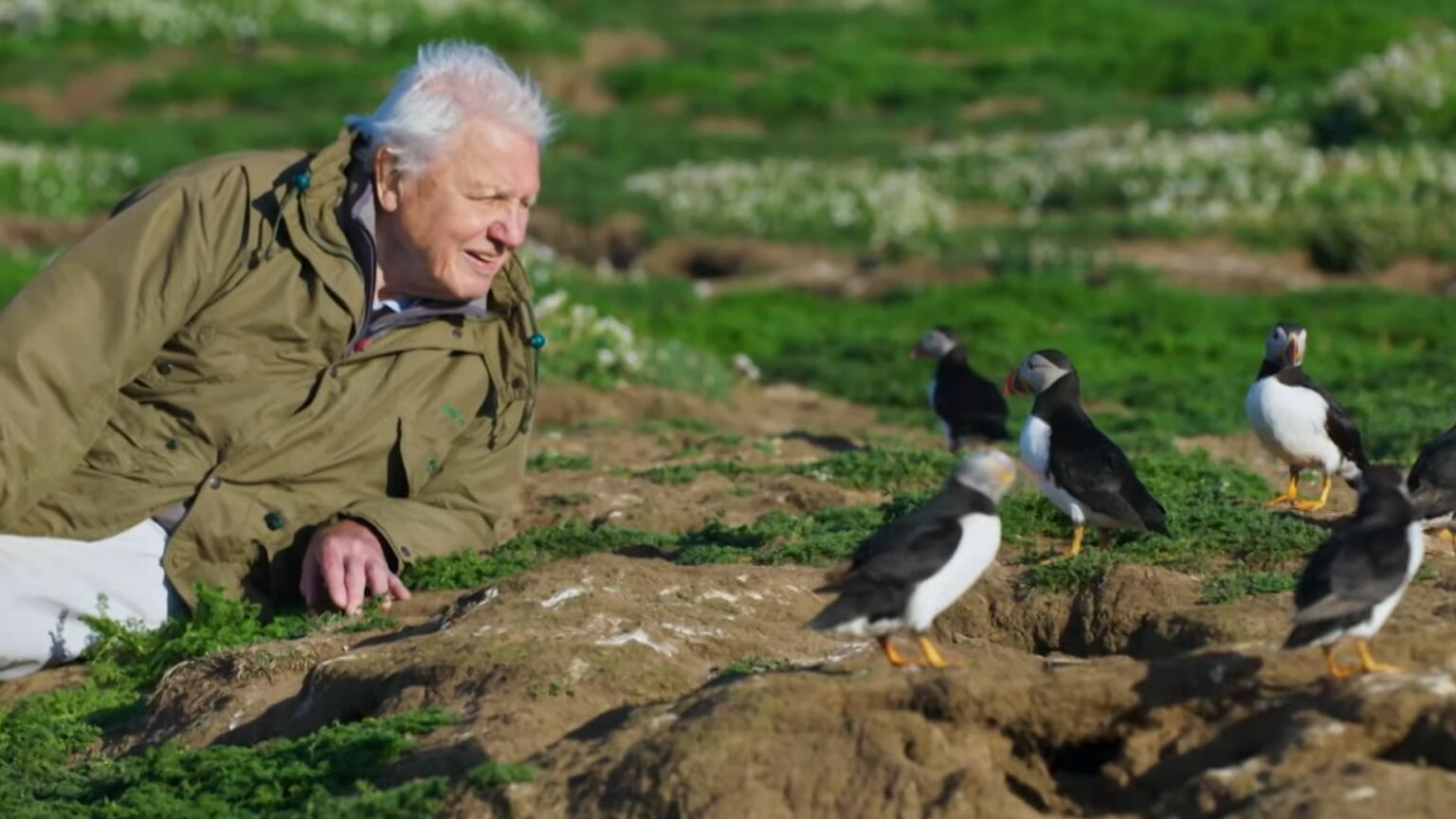No, the BBC is not censoring David Attenborough
Claims that an episode of Wild Isles was suppressed to please the Tories are untrue.

On Friday, amid all the uproar over Gary Lineker’s tweets, the Guardian excitedly claimed that the BBC was suppressing a secret sixth episode of David Attenborough’s new documentary series, Wild Isles, over fears of a ‘right-wing backlash’.
The Guardian reported that this sixth episode, which takes ‘a stark look at the losses of nature in the UK and what has caused the declines’, was considered by the BBC to be too much for ‘Tory politicians and the right-wing press’ to handle. And so, fearful of the wrath of the right, the corporation had decided to hide the episode away on BBC iPlayer, instead of airing it on live TV in the show’s usual primetime slot.
Cue angry accusations of censorship from those convinced that the BBC is being taken over by a sinister right-wing cabal. The great and good couldn’t believe what they were reading on Friday evening. First Lineker, and now Attenborough? Where will this right-wing purge of the BBC end?, they wondered.
Green MP Caroline Lucas raged at the BBC for ‘censoring’ Attenborough, blaming it on the ‘cynical culture wars stoked by populist ministers’. New Labour’s Alastair Campbell took to Twitter to lament ‘right-wing bullshittery and BBC management cowardice’. The Guardian also carried an op-ed, in which it said the BBC had ‘effectively silenced its greatest presenter’ (Attenborough, that is, not Lineker).
But there’s only one problem with this tale of Attenborough, a right-wing backlash and craven BBC censorship. It doesn’t seem to be true. There is no secret sixth episode of Wild Isles. And there is no plot by the BBC to keep the ‘truth’ hidden from the public. The Guardian, to put it kindly, seems to have got the wrong end of the stick.
As journalist Jake Kanter has pointed out on Twitter, the supposedly censored episode is in fact a complementary film that was made for the RSPB, the WWF and the National Trust. The film, titled Saving Our Wild Isles, is not part of the series and was not made for the BBC. It was commissioned by wildlife and conservation charities, and then later acquired by iPlayer. It was never intended to be shown on TV.
Guardian reporters could have saved themselves a lot of trouble by reading the original BBC press release for Wild Isles from last August. There, the BBC announced ‘a major new five-part natural-history series’. Not a six-episode series, but a five-episode series. Which is exactly what the BBC is now broadcasting.
Those involved in making Saving Our Wild Isles have been quick to point out that the Guardian article is wrong. The WWF, which part-funded the film, has tweeted that the film was ‘inspired by the Wild Isles series but not part of it’. The BBC has said that the Guardian report is ‘totally inaccurate’.
So, not for the first time, liberal-left journalists and politicos – those most keen to warn of the dangers of fake news – have happily spread a seemingly untrue (or at the very least misleading) story. Will any of them admit to their mistake? I’m not holding my breath.
Lauren Smith is an editorial assistant at spiked.
Picture by: YouTube / BBC.
To enquire about republishing spiked’s content, a right to reply or to request a correction, please contact the managing editor, Viv Regan.








Comments
Want to join the conversation?
Only spiked supporters and patrons, who donate regularly to us, can comment on our articles.